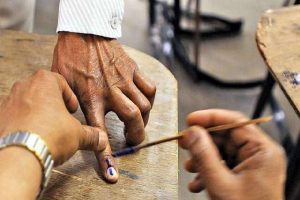Democracy as a contested notion has involved heated debates around its actual meaning, ideals and the process of endorsement and ratification. Historically, the debate has been framed around the ideals of liberal democracy championed by the West which tend to combine democracy and capitalism. What is missing in this debate is the discussion around contextualising democracy.
Amid shrinking Euro-Western hegemony, democratic processes continue to decline particularly in the post-colonial countries. In the aftermath of the Covid-19 pandemic, the problem has been exacerbated by growing surveillance, discriminatory prohibitory orders and their violent enforcement, deliberate misinformation and disinformation. Fraught with multifaceted challenges emanating from issues of migration and refugees to policy corruption and constitutional coups, democracy has arrived at a critical juncture.
Advertisement
In their international bestseller How Democracies Die, professors Steven Levitsky and Daniel Ziblatt argue that democracies continue to erode in a more subtle and invisible way without involving much bloodshed and military warfare. More importantly, such erosion is more profound in countries generally known to be champions of democracy like India and the United States of America. While India was relegated to the status of Partly Free from Free in the Freedom House report, American democracy, particularly during the Trump administration, plunged into its deadliest crisis with episodes of political violence and forced suppression.
In a special issue review for the Science Journal, Susan Hyde, professor of Political Science at the University of California, observes that democracies continue to shift from tailwinds to headwinds implying that the overall environment for fostering democracy continues to decline under adverse circumstances.
Nevertheless, the rise of individuals without a political track record—businessmen, social activists and academicians—in mainstream politics with the support of popular votes particularly in the Western countries raises the question of whether or not corporate capitalism and democracy can survive together.
Though autocratic regimes have been significantly toppled, a serious threat is emerging from the whimsical desires and chaotic nature of elected leaders. Under the pretext of the responsibility to protect the nation and citizens, elected leaders have undermined democratic principles and the rule of law. This has not only fostered the autocratisation of democracy, but also raised a serious question about the relevance of representative democracy.
Some of the defining features of the backsliding include an intent to undermine the public mandate, disregard for the principles of separation of powers, zero tolerance of the opposition’s ideas and a vehement attack on individuals or institutions with differing perspectives. The principles of democratic norms and values have been neglected. An attempt to bewilder the public using the media as a tool to spread misinformation and disinformation has also become rampant in the downfall of democracies.
During the administration of President Duterte in the Philippines until recently, a ban was imposed on media outlets that published criticism of the government’s pandemic response. Whether it be the case of amassing emergency powers by Hungarian Prime Minister Viktor Orban on the pretext of the deepening Covid-19 crisis or the restriction on the freedom of assembly to support a protest movement in Algeria, democratic processes have come under severe attack.
In Nepal’s context, profound debates around the suitability of the newly institutionalised federal model is growing amid signs of failure of representative democracy. In this context, an innate desire to dismantle democratic institutions and processes seems to be on the rise. Institutions have been deliberately weakened. Ranging from lucrative political appointments to bureaucratic reshuffling, abuse of authority has become rampant.
Whether it is party politics or national politics, democratic norms seem to be waning. The latest confrontation between the executive and the judiciary is a testament to this. The promulgation of ordinances by bypassing parliamentary proceedings has become a new norm. Be it the erstwhile Oli government or the present Deuba government, the promulgation of ordinances has generated heated controversy.
The constitution of the country has come under repeated attack, and the Supreme Court has emerged as a saviour in recent times. Having said that, the apex court has come under a great deal of criticism owing to the chief justice’s blatant violation of judicial norms and values further stifling democratic practices within the judiciary. Internal democracy within the political parties is at the lowest ebb. Ranging from the decision to convene key party meetings to the appointment of party leaders in the cabinet, the high-handedness of a handful of first-generation leaders in such political parties show the gravity of the situation.
Several attempts to infringe upon constitutionally guaranteed fundamental rights have surfaced of late. The nation has witnessed a series of public protests in recent times, particularly due to the unholy intention of the government to shrink civic space and public freedom. Be it restricting peaceful assembly or imprisoning protestors for expressing dissenting voices against the authorities, the government has been repressive.
The political leadership has engaged in a terrible blame game using demeaning language at public forums, further making a mockery of democracy. Attempts to prove oneself right in every possible way at the cost of tarnishing the image of others have emerged as a serious issue in Nepali politics. Consequently, accountability and transparency as two major pillars of a vibrant democracy continue to dwindle.
Saving democracy calls for an accommodative leadership committed to addressing deeper structural problems. Creating an environment where citizens and larger civil society can work together by respecting dissenting voices will be instrumental towards restoring democratic practices.
(The Kathmandu Post/ANN)











